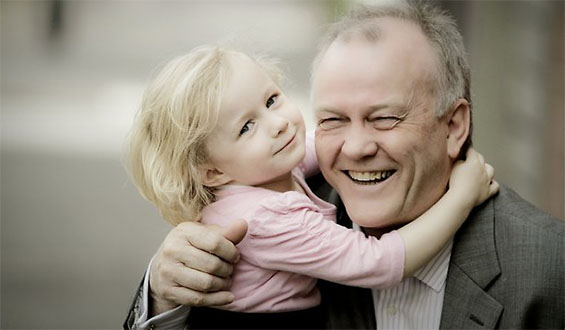
A study conducted on European shags (Phalacrocorax aristotelis), seabirds that are socially monogamous and can live up to 22 years, has shown that the age of parents can correlate with the length of life of their offspring – and there may be implications for humans, too.
Researchers believe this could be because the age of the parents affects their children’s telomeres, which are protein elements that protect DNA at the ends of chromosomes.
To understand, the researchers say telomeres are like the plastic ends of shoelaces.
“Telomeres function a bit like the plastic caps at the ends of shoelaces and protect the coding DNA from loss during cell division. Telomere loss reduces the lifespan of cells and is thought to be involved in the ageing process,” said one of the researchers Britt Heidinger, assistant professor of biological sciences at North Dakota State University, Fargo, US.
Long telomeres or slow telomere loss rates lead to greater longevity for many species. This characteristic is found in shags, and the free-living birds that were studied on the Isle of May National Nature Reserve in the estuary Firth of Forth, Scotland have been watched for over 30 years.
After measuring the telomere of the chicks from their blood samples, the scientists found that chicks from older parents had greater telomere loss than baby shags from younger parents. The loss seemed to occur during nest growth and not during the pre-natal interval.
The report indicated that maternal age effects were more prominent than paternal age effects. The study was published in the journal Functional Ecology.
Prior to these finding, the scientists discovered chicks that suffer high levels of stress during their growth period have greater telomere loss, reports Katherine Derla, writing for Tech Times. Heidinger surmises that these results may have occurred because older parents do not offer as much direct parental concern as younger parents.
Another study implemented in 2015 found that there was a link between taller people and shorter lifespans. The findings showed that when a body grows, the body’s cells divide more frequently. This division means more rapid telomere loss that leads to defective cell and tissue performance.
On a more positive note, there is a link, say some researchers, between women waiting to have children by one year and an approximate 9% increase in their earnings during their years of employment. Scientists add that for every extra year they wait, the increase is added.
Ellie Kinkaid of Business Insider writes that Amalia Miller, an economist at the University of Virginia, researched test scores in reading and math for over 1,000 children and discovered that a year’s delay in a woman becoming pregnant was associated with a significant increase in her progeny’s test scores.
Miller makes it clear that children born to older mothers do not always score better on tests than kids with younger moms. Still, Miller used data from a national survey administered by the Bureau of Labor Statistics and found that the test score increase was present even when controlled for families’ financial status, race, the level of education, and family composition.
Board-certified psychotherapist Lois Nachamie, who specializes in parenting matters in private practice in New York City, suggested that, “older women are generally more emotionally ready to be mothers than younger women are.” Miller adds to that notion the possibility that the quality of parenting may improve as a mother ages.




